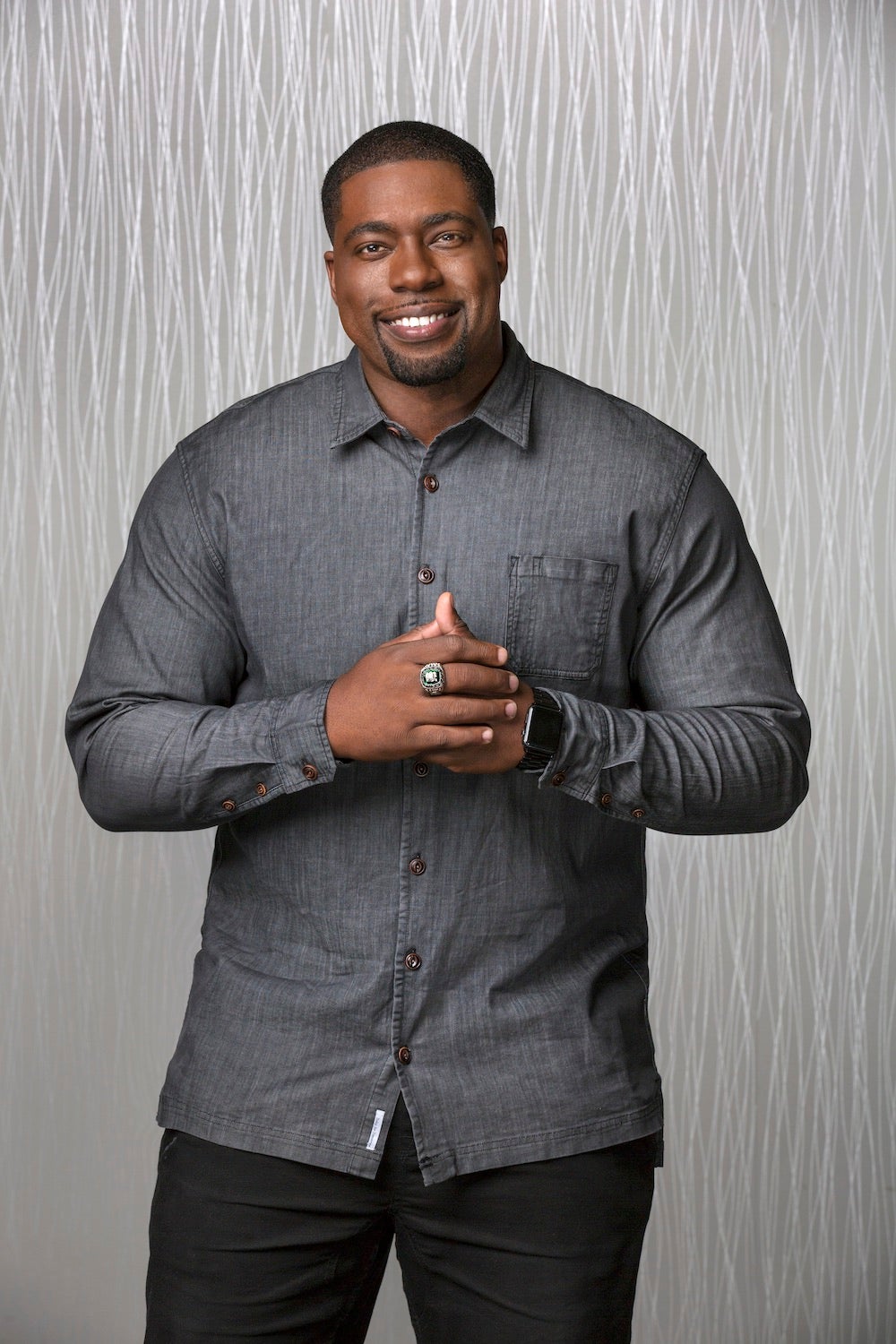
There are plenty of stories about young Black men, destined for the NFL whose dreams are stripped away after committing one stupid act. But what happens when you’re actually innocent? This was the case of Brian Banks, a standout high school football star and NFL hopeful.
Only age 16 at the time, Banks was falsely accused of rape by a high school classmate in 2002. He then spent five years in prison and another five on strict custody parole for a crime that would eventually be overturned.
Now, fully exonerated and given a second chance at life, the former Atlanta Falcons player is giving others who claim to be in similar situations the opportunity to have their stories told, too.
“I think the biggest thing was knowing that I was, in fact, innocent. That I didn’t commit this crime and I wasn’t going to allow, you know, these labels and accusations and these false brandings to dictate who I am as a person,” Banks told ESSENCE. “I wanted to be more than that.”
Oxygen’s latest investigative series, Final Appeal, shows the former professional football player and former Prosecutor Loni Coombs tackling stories of those who claim to be wrongfully incarcerated. Banks’ aim is to open up the conversation on how issues of false convictions continue to occur within the legal system.
“Ninety-five to ninety-seven percent of criminal cases in the United States will end in some form of a plea bargain,” Banks said. “Only three-to-five percent of criminal cases in the U.S. will go to trial. Everyone else is pleading out to a deal. That doesn’t mean that everyone’s guilty, it means that people are being forced into deals, feared into deals, exhausted into deals.”
“I think that speaks a lot for how many people could potentially be behind bars wrongfully convicted…in fear of getting a larger amount of time or a larger sentence for something that they didn’t do,” he said. Banks shared that the point of the show is not to parole prisoners, but to give them the benefit of the doubt.
“We’re not coming to the show to get involved in a case in a way we could play a part in trying to prove innocence,” he said. “Our job is to come into a case and see: If this person has been telling the truth this entire time and that they didn’t commit this crime. Or we’re going to find out that they, in fact, did commit this crime.”
Though his story had a positive ending, the California native realizes that not everyone falsely accused of a crime will be afforded that same blessing. In addition to eliminating harsh sentences for minors, Banks also believes that judges shouldn’t be awarded for their conviction rates.
“We need to have some form of responsibility with our prosecutors and their convictions,” he said. “We need to do away with the incentives of a conviction rate. We see our prosecutors advancing in the prosecutorial world all become judges because they have a high conviction rate and are tough on crime. We need to do away with those incentives.”
The system isn’t perfect. But with Banks working, it can hopefully get better.
Final Appeal finales this Sunday, January 28th at 8 p.m. ET/PT on Oxygen.




